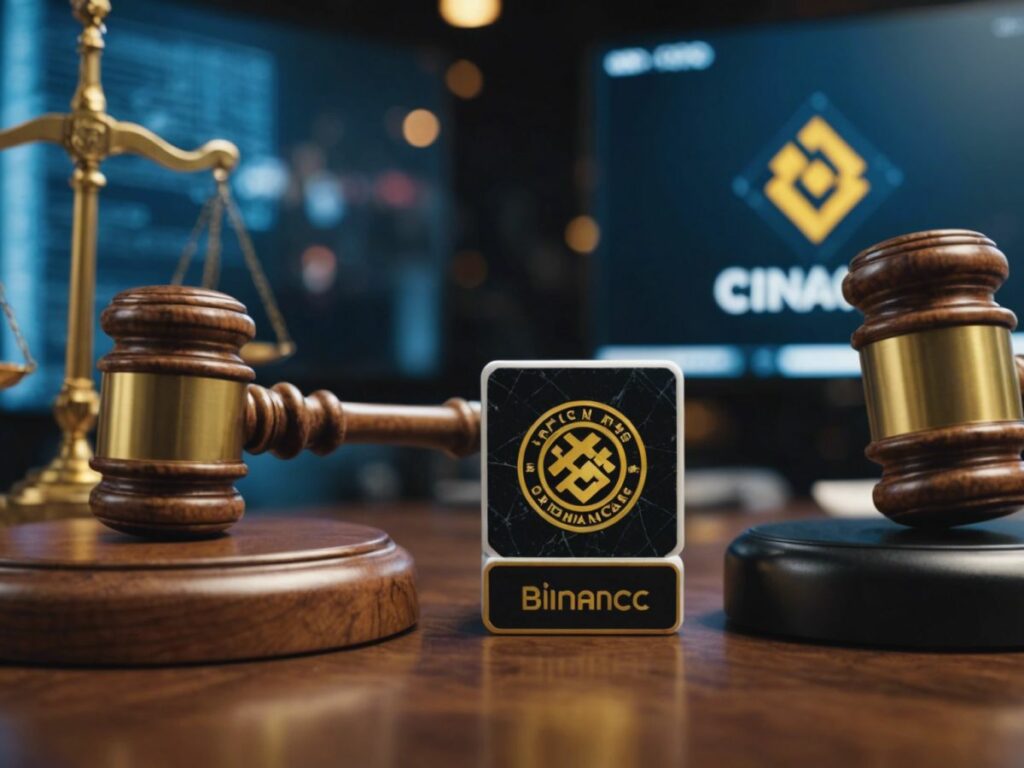In 2023, the U.S. Securities and Exchange Commission (SEC) initiated lawsuits against the world’s three largest crypto exchanges – Binance, Coinbase, and Kraken – marking the beginning of a stringent regulatory era for the previously unrestrained crypto industry. These legal actions have significant implications for the future of cryptocurrencies and the broader market.
Key Takeaways
- The SEC has filed lawsuits against Binance, Coinbase, and Kraken, accusing them of various regulatory violations.
- The lawsuits could transform the crypto market by asserting the SEC’s jurisdiction over the industry.
- The market response has been mixed, with some cryptocurrencies experiencing sell-offs while others rebounded.
SEC vs. Binance: Accusations and Market Impact
On June 5, 2023, the SEC filed a lawsuit against Binance, accusing the exchange of several violations, including running an unregistered exchange, selling Binance-owned cryptos BNB and BUSD, and using customer funds for its own interests. The allegations against Binance are severe, drawing parallels to the now-defunct FTX exchange.
The lawsuit remains unresolved as of late November 2023. Reports suggest that the SEC is investigating whether Binance and its founder, Changpeng Zhao, had a “backdoor” to control assets on the Binance.US platform. Binance has responded by filing a motion to dismiss the lawsuit. The case is expected to extend into 2024, with Binance agreeing to pay a $4.3 billion fine to settle charges from other U.S. regulatory bodies.
SEC vs. Kraken: Similar Complaints
On November 20, 2023, the SEC filed a complaint against Kraken, accusing it of operating as an unregistered securities exchange and commingling customer funds. Kraken has denied the charges and intends to defend itself in court. This is not the first time Kraken has faced legal action from the SEC; earlier in 2023, it agreed to cease its crypto staking services and pay $30 million in fines.
SEC vs. Coinbase: Compliance Issues
A day after the Binance lawsuit, the SEC charged Coinbase with operating as an unregistered securities exchange and broker. The SEC also took issue with Coinbase’s staking-as-a-service program and its marketing campaigns. Coinbase has responded by agreeing to register part of its business with the SEC, but the lawsuit is expected to continue into 2024.
Market Reactions
The cryptocurrency market has shown resilience despite the SEC’s actions. Bitcoin and Ether rebounded quickly from initial sell-offs, while other cryptocurrencies like BNB, ADA, SOL, MATIC, and ATOM experienced selling pressure. Data firm Nansen reported significant withdrawals from Binance following the lawsuit.
Future of the Crypto Industry
The SEC’s lawsuits against major crypto exchanges signal a new era of regulation. Experts predict that U.S. centralized exchanges may only list Bitcoin and Ether in the future, with other tokens being traded on decentralized exchanges. The industry is also lobbying for cryptocurrencies to be regulated by the Commodity Futures Trading Commission (CFTC) instead of the SEC.
Understanding the SEC’s Concerns
The SEC aims to regulate cryptocurrencies similarly to securities, ensuring that crypto companies provide truthful information and protect investors. However, the lack of specific regulations for cryptocurrencies has led to legal challenges and uncertainty in the industry.
Conclusion: Inevitable Regulations
Cryptocurrency regulation appears inevitable, but there is hope that the U.S. will provide a fair regulatory environment. With clearer regulations, crypto exchanges are expected to become stronger and more secure, benefiting the industry in the long run.
Sources
- SEC vs Binance, Coinbase, Kraken Lawsuits Usher Tough New Era, Techopedia.
- Binance, Coinbase head to court; the SEC labels 67 crypto-securities, Cointelegraph.
- US tightens crackdown on crypto with lawsuits against Coinbase, Binance | Reuters, Reuters.
- The SEC Comes for Crypto – Bloomberg, Bloomberg.com.
- SEC’s war on crypto: How far will it go? , Cointelegraph.
